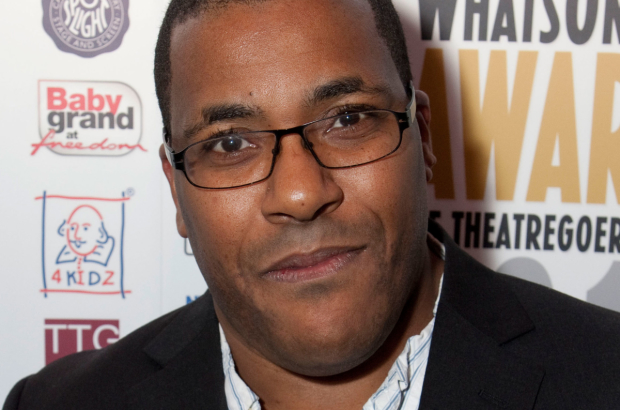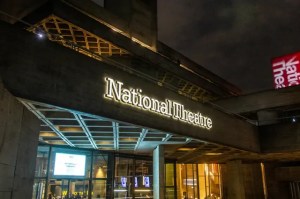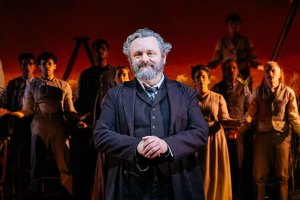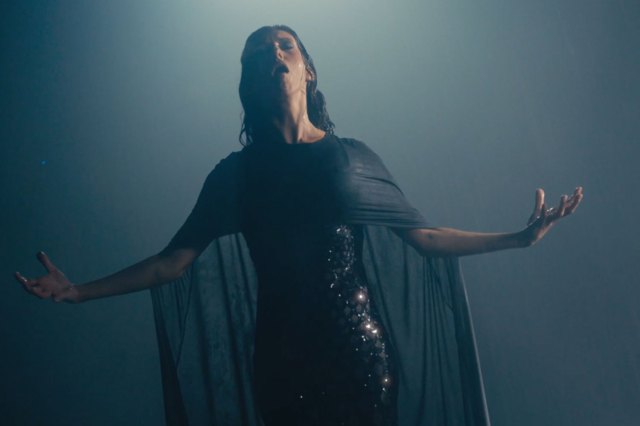Roy Williams: 'Artists need to ask uncomfortable questions about our society'
Roy Williams discusses the Windrush generation, black playwrights and whether British theatre is political enough

© Dan Wooller for WhatsOnStage
One of Britain's most important playwrights, Roy Williams has written about everything from British racism (in Sing Yer Heart Out for the Lads) to Marvin Gaye (in Soul). His 2010 piece Sucker Punch was nominated for the Olivier Award for Best New Play in 2011 and he won a BAFTA Award for Offside. This month, his play Come Back Tomorrow will run as part of the National Theatre of Wales' NHS70 Festival, where the company has commissioned a series of artists to pen tributes to the NHS. Here Williams explains why it's a subject close to his heart.
You have quite a specific connection to the NHS, is that right?
My mum worked in the NHS for many years, but she was also part of the Windrush generation. So when I was invited to write this, I thought it was a double opportunity, because I could pay tribute to the NHS, but my mother's generation too.
Is it directly about your mother?
Not directly, it's more inspired by her. It's a tribute to her generation and one of the characters is named after her. The piece is more of a love letter to the NHS, but it also marks the Windrush generation's contribution too.
What is the play about?
It's about two nurses, played by the same actress. The main character is Judy, who works in an A&E hospital in Swansea. She talks about why she's lost her love for the job, she doesn't know why she's doing it anymore, she's fed up with the cuts. But then she's visited by her grandmother Gloria, who died a few years ago. It's like Gloria's past is trying to help Judy to decide her future. It was my way of showing how hardworking these nurses are.
When we talk about the NHS, a lot of the time we talk about what it's like to be a patient, but there's a whole other viewpoint – what it's like to work for it too…
Yes, and I don't think we see that point of view enough. Many of these people don't want or have to be nurses, they need to. It's a calling. They do what they do with little thanks.
The fact that Windrush and NHS are both 70 this year is an interesting thing to note…
Yes. I didn't know this, but it's not like people came over here and stumbled across nursing, they were all trained in their respective islands and were responding to us saying we need you in our hospitals.
Is it the first time you have worked with National Theatre of Wales?
Yes, I've known Kully [Thiarai, artistic director of NTW] for several years, and it was a delight when she emailed me. I think they are doing very bold and courageous work. And I think the fact that they are doing it without a theatre or building is admirable. It gives them an excuse to get their work out there. I think it liberates them.
Your work is usually very political, would you say British theatre is currently political enough?
I am curious to see where our political writing goes once Brexit comes closer and once the entire world feels the impact of Donald Trump as president. I am interested to see how artists, not just playwrights, respond to that. I think people are wanting to hear what the alternative is, we need to probe deeper into those issues and ask uncomfortable questions of ourselves and our society.
Do you think the younger generation of writers are more or less inclined to address politics on stage?
I think they want to, but maybe they aren't getting the opportunity, with cuts and less theatres commissioning. I run a writers' group at Hampstead with four young writers and they really want to express themselves in much more of a clear way than I did when I was 24.
Did you find it hard to break into playwriting?
Only because I had no experience. I had a play to my name, but what helped was that I went back to college. I did some acting, but nothing to speak of. I had little time for it anyway, whenever I worked as an actor I thought: ‘What the hell am I doing, I'm not an actor, it's writing I need to do'.
What was the play that changed things for you?
I wrote a play in our final year of my college degree and my tutor advised me to send it to new writing theatres. So I photocopied it three times – I spent the last of my grant money on that, I couldn't send it to anymore. All I wanted was a response, the last thing I expected was anything else. But three months later all those theatres rang me within a week, asking me to come in and meet them. Which was pretty stunning. Theatre Royal Stratford East put it on, but I went on to have relationships with the other two – the Royal Court and Hampstead.
Gruff Rhys' contribution to the NTW NHS 70 celebrations
What makes you want to write a play?
I have written plays out of anger, some out of curiosity, in response to subject which break my heart. The Grenfell fire broke my heart. It was in an area I grew up in. I knew that tower block and estate very well. I moved out of the area several years ago. But the day after it happened there was a little voice inside me that said: ‘You're going to write about this, you have to, you need to.' So that's one I'm writing. Out of Joint have commissioned me.
Do you think British theatre is better at enabling writers of colour?
No, I don't think we are. I think we may have reverted, if I am brutally honest. I am delighted beyond words that Natasha Gordon's Nine Night has transferred, about bloody time! It was one of the best plays I'd seen this year. I think some people think that because it's written by a black woman with an all black cast, it won't sell. But that's just not the case anymore. I want more. It's still a novelty and that's why I think it's got worse. It's not the norm. And that's just not good enough.
Love Letters to the NHS runs from now until the end of July and Come Back Tomorrow runs from 26 to 28 July at The Chapel, Singleton Hospital.


















